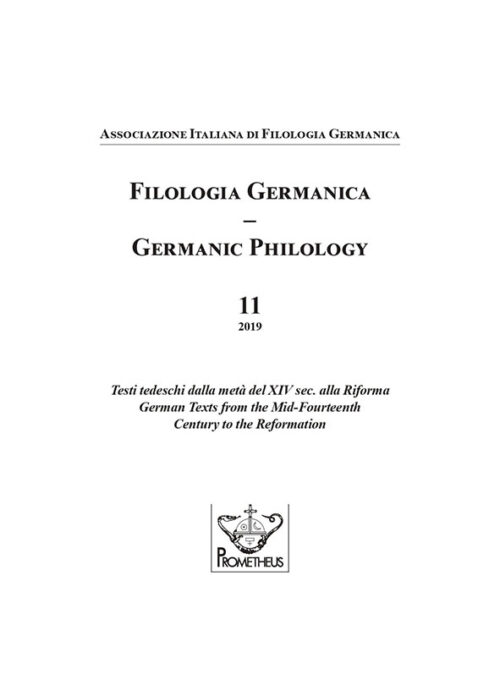‘Fate ciò che vi diciamo e predichiamo e non quello che facciamo’. Annotazioni di Arigo sul clero del Decameron
DOI:
https://doi.org/10.14672/fg.v11i.2559Abstract
Within the wide reception of Italian Humanism that occurred in Germany in the second half of the fifteenth century, the unabridged version of Arigo’s Decameron represents the beginning of the long and prolific life of the Boccaccio’s entire cycle within the German literary tradition. Nevertheless, this work contains no certain information about the translator, who remains not definitely identified today. According to a literary convention, Arigo personally introduces himself in the Introduzione to the First Day, but he does not provide any further details regarding either himself, or his technique, still not wholly defined and not unanimously assessed. If carefully examined, however, Arigo’s work could be a source of enlightenment concerning his intents, opinions and his readers. In his Decameron, Arigo adheres quite strictly to his hypotext and nevertheless, more than once and for different reasons, he temporarily abandons the literal method adding some personal elucidations, adaptations and comments. This paper aims to examine Arigo’s viewpoint on the members of the clergy mentioned in the Decameron, deceitful protagonists of a significant number of Boccaccio’s novelle, which expose the clerics’ shameful conduct, criticizing in particular the Mendicant orders, accused of greed, lust and, above all, of hypocrisy. Arigo presents these tales integrally, uncensored and without moralization. Except in a very few cases, he conveys precisely all the original reproaches and, sometimes, emphasises them by means of personal observations. This occurs especially with regard to faults such as ypocrisia, a grave sin that Arigo pairs with geytigkeit ‘greed’, ‘avarice’, or the debauchery of the regulars, in perfect accord with Boccaccio’s point of view.
Pubblicato
Fascicolo
Sezione
Licenza

Questo lavoro è fornito con la licenza Creative Commons Attribuzione - Condividi allo stesso modo 4.0.
CC-BY-SA



